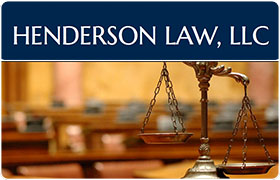 Pike County, MS White Collar Crime Lawyers
Pike County, MS White Collar Crime Lawyers
Sponsored Law Firm
-
 x
x

Click For More Info:
-
Henderson Law, LLC
115 North Cleveland Avenue Brookhaven, MS 39601» view mapDUI, Criminal Defense, Traffic Offenses, Burglary Mississippi Criminal Defense Lawyer
Henderson Law, LLC is committed to helping people overcome the serious effects of being arrested and accused of a crime.
800-939-0830 -
- Contact
- Practice Areas
- Visit:
- Website
- Profile
Not enough matches for Pike White Collar Crime lawyer.
Below are all Pike lawyers.
Sponsored Lawyers
1-10 of 27 matches
Accident & Injury, Estate
Attorney Thomas Brock founded Thomas W. Brock, PC in 1994. An accomplished Mississippi personal injury lawyer, he represents clients who have been injured in car accidents, motorcycle collisions, slip and fall accidents, and railroad accidents, as well as those harmed by dangerous drugs or defective medical devices. Thomas Brock’s legal practice also includes real estate litigation, mass tort representation, Jones Act claims, and tax litigation. Throughout his decades in practice, Thomas Brock has achieved numerous significant results for his clients. He is a passionate advocate for the injured, willing to go the extra mile to recover the maximum compensation his clients are owed. Thomas Brock has received a 4.1/5.0 Rating from Martindale-Hubbell®. His areas of practice include litigation, transportation, personal injury, product liability, and negligence, among others. For a free consultation regarding your case, contact Thomas W. Brock, PC today.
(more)Accident & Injury, Criminal
John McNeil proudly serves Magnolia, Mississippi and the neighboring communities in the areas of accident & injury, criminal defense, divorce & family, estate, and workers' compensation law.
(more)



 Edward Henderson Brookhaven,MS
Edward Henderson Brookhaven,MS About UsEdward Henderson
About UsEdward Henderson Contact UsCall or Email Now!
Contact UsCall or Email Now!


